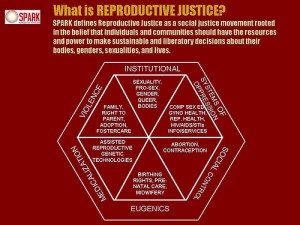I wrote this piece in response to events in the Illinois town where I live, and it was first published in the Jacksonville Journal-Courier on September 10, 2014:
Abandonment used to be a regular form of family planning — leaving a newborn out in the elements where she or he would likely die from exposure if not found quickly by a passerby.
It’s a horrible thing to consider that the news of a newborn baby found in a Dumpster in Jacksonville on Aug. 30 has brought back to the front page.
And it used to be relatively common. In his study of child abandonment in medieval Europe, historian John Boswell notes that reasons for its prevalence ranged from poverty to shame to inability to raise a child to covering up abuse. Churches in the Middle Ages sought to stem the practice by setting up foundling homes, the word itself referring to an infant that has been “found” and raised by someone else after being abandoned by birth parents. Some foundling hospitals even had what Catholic theologian and ethicist Christine Gudorf describes as a “lazy Susan” wheel in an outer wall on which a desperate parent could place a child, and upon turning it the child would end up safely inside the wall of the church or hospital.
This echoes 21st century “safe haven” laws. In Illinois, the “Abandoned Newborn Infant Protection Act” says that parents who do not harm their babies cannot be prosecuted for abandonment if they take their newborn to a safe place and hand the baby to a staff member. These safe places include hospitals and police and fire stations.
Over the course of history, rates of abandonment fell as women’s knowledge about preventing and ending pregnancies grew. The rise of modern contraceptives, along with their legalization in the 20th century, made abandonment less and less necessary.
The details of the case in Jacksonville are not known to us, and maybe never should be. Imagine what might be going on in the life of a teenage girl that would lead her to such a desperate and terrible action. No one should ever be in a position to think that abandoning a child in a Dumpster is her only option. And if she is, what does that say about the world around her?
So let’s step aside from this story and talk about reproductive justice in general. In a perfect world, each pregnancy would be a wanted one, maybe even a planned one. We have all the science and healthcare we need to make that possible in this country. And yet, birth control is politicized and settled science is subject to religious beliefs (see Burwell v. Hobby Lobby). Abstinence-only ideology passes for sex education in some communities. Women are shamed by sitting members of Congress and members of the media when they argue that access to contraceptives is part of protecting their health and building strong families (see Limbaugh v. Fluke). Imagine the message that this sends to young women and men navigating adolescence.
 Reproductive justice includes access to and education about contraception, and it is so much more than that. It includes economic justice so that families have stable means to care for one another. It includes preparation for and access to higher education so that women and men have skills to actively shape their futures. It includes environmental protections that enhance maternal and fetal health, sane immigration laws that don’t criminalize children, and it includes access to safe and legal abortion. Because sometimes things don’t go as planned and a young woman is pregnant anyway.
Reproductive justice includes access to and education about contraception, and it is so much more than that. It includes economic justice so that families have stable means to care for one another. It includes preparation for and access to higher education so that women and men have skills to actively shape their futures. It includes environmental protections that enhance maternal and fetal health, sane immigration laws that don’t criminalize children, and it includes access to safe and legal abortion. Because sometimes things don’t go as planned and a young woman is pregnant anyway.
Feeling forced to carry a pregnancy to term is a tragic side effect of a culture that ignores science in favor of ideology, and politicizes healthcare in favor of re-election campaigns.
We don’t need to know the details of the story in Jacksonville to know that something went wrong here. The criminal-justice system will investigate this young woman’s role and responsibility. The rest of us can consider what our role is in building a society where young people are educated, protected, encouraged and equipped to make healthy choices in their lives. What laws have we supported to enhance access to contraception and education about its use? What rhetoric have we contributed to debates about women’s reproductive healthcare? What votes have we cast in local and national elections?
Because a 17-year old girl isn’t the only one at fault in this terrible story.












